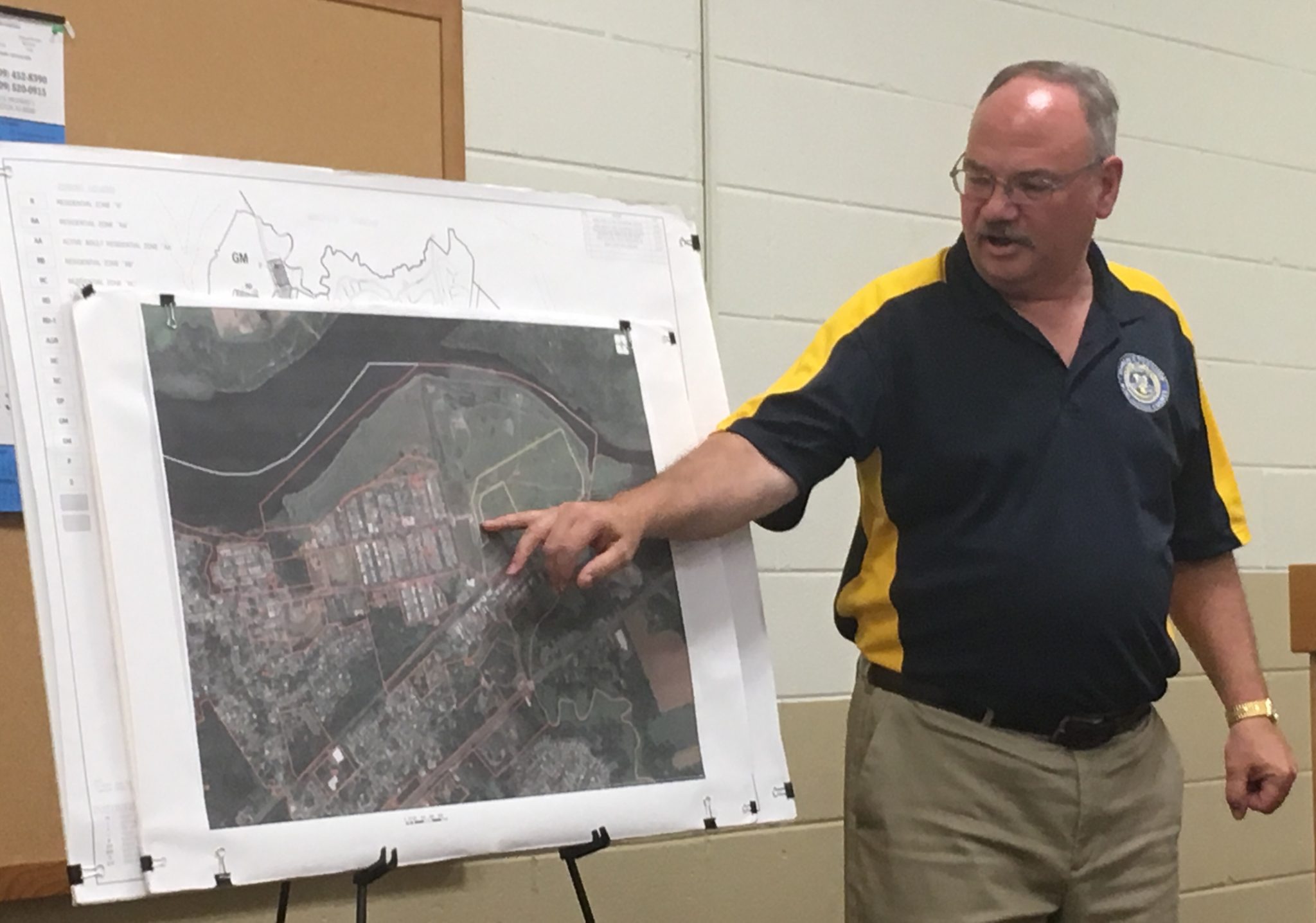Discussion is underway for the proposed development and use of township-owned property sited near the Roebling Museum in Florence.
Florence Township Planning Board members dedicated a portion of their Aug. 27 meeting to field discussions about the proposed development and use of waterfront property along the Delaware River, which is situated by the Roebling Museum and owned by the municipality.
The conversations among the municipal officials were held during the board’s Master Plan discussion period of the meeting where Florence Township Mayor Craig Wilkie introduced and led the evening’s topic.
Wilkie said the waterfront property has been owned by the township since the late ’90s and explained that throughout the years, there has been conversation about what is and what is not supposed to go there.
“The question is, ‘What do we really want here?’” Wilkie said. “Over the years, folks have come here with different [proposals] before, that never came to fruition.”
The Florence mayor said that in past years, the site has been the subject of proposed development for projects such as a golf course, power station and warehouses.
Although Wilkie said he had been approached for proposed warehouse development at the site, he said he felt several factors involved with the construction of the property for that use would be costly and ruled it out of conversation.
“We know that trucks are a heavy problem, and that would mean either suffering [traffic] through Hornberger Avenue or putting a road through the back end of the property. But to do that, we would have to put a bridge in – we know that costs millions of dollars, which puts it out of the picture,” he said. “We are not looking for warehousing down there.”
Following Wilkie’s introduction of the background and history of the property, the township planners fielded additional discussion about multiple uses for the property. The conversations included a potential marina/waterfront district, entertainment area, residential development, boardwalk and other commercial opportunities.
Although multiple uses for the site were proposed during the Master Plan discussion, the Florence mayor made it clear that he is not anticipating to develop the property relatively soon. Wilkie explained that he felt the township’s current economic status allows the municipality an extended amount of time to plan the use of the site, accordingly.
“When it comes to looking for future uses, we don’t need this today,” he said. “Our community is financially stable, so we don’t need develop this property, immediately. We need to turn around and say, ‘What would we like here?’”
Wilkie said that the goal for the municipality is to have a Master Plan in place and completed by December 2020.
As additional discussion about proposed uses for the property commenced, Township Planner Barbara Fegley noted that a marina/waterfront district could potentially attract businesses such as bait and tackle shops, boats salespeople, maintenance and repair. The planners said that commercial uses such as food and entertainment would potentially follow suit.
Although the discussions leaned particularly toward a potential marina/waterfront district, Planning Board Vice Chairperson Bruce Garganio said he felt a boardwalk area could be a favorable use for the property.
“With the amount of frontage we have on the Delaware River – if you go back there’s a lot of docks, and I have always thought it would be a perfect location to do some sort of boardwalk up along that water whether you are doing antique shops, restaurants or small businesses,” Garganio said. “With the historic element of the steel plant and Roebling along with the train station there, you could turn that into a small destination.”
Although there was discussion among the planners for potential residential development, Garganio noted that the site, which is also situated near Roebling residents, could impact the population density.
“I get the residential side of it, but we are already densely residential there with the Roebling Village,” Garganio said. “We have the ability to bring people in to try to support small businesses whether it’s a little bar or microbrewery. We have an opportunity to really take advantage of [the area].”
After Garganio’s comments, board member John Pagano noted that the site’s access to public transportation such as the Roebling Light Rail Station and NJ Transit Bus stops along Hornberger Avenue make it a unique asset to the township.
Once the board’s discussion concluded, Wilkie said he wanted to develop a committee to host further discussion and planning for the site, which he, Garganio and Pagano volunteered for. Municipal officials said they anticipate the topic to be discussed further at upcoming meetings.

